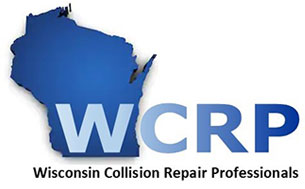Insured Motorists’ Rights in Wisconsin
Information to assist you in handling a claim with your insurance company
Do I have the right to select the shop of my choice to repair my vehicle?
YES, Wisconsin law states . . . "a consumer has the right to select the motor vehicle repair facility of his or her choice." This law also prohibits insurers from failing to initiate and conclude an investigation of a claim based on your choice of repair shop. (Wis. Statute 632.375)
632.375 Motor vehicle repair practices; restriction on specifying vendor.
Do I have to use my insurance company's preferred shop?
NO. Again, you have the right to choose the repair facility.
Am I required to take my vehicle to a particular location for an estimate?
Generally no. Unless your insurance policy states otherwise, it's not mandatory that you take your vehicle to a drive-in claims center (check your insurance policy).
Can an accurate estimate be written based on photos or digital images?
Possibly. The more extensive the damage, the greater risk of an incomplete or inaccurate estimate being written based on photos. A physical inspection of the vehicle is best to ensure the most accurate estimate.
Must I notify my insurance company?
Yes, if you're filing a claim under your insurance.
What if I'm not at fault?
Generally, if the accident wasn't your fault, the other party's insurance company should cover you and your vehicle so you may try to collect from the other party. HOWEVER, each accident is different. The facts and circumstances of each accident, the actions and/or inactions of each driver will determine which driver or drivers caused an accident and to what degree or percentage each driver will be held accountable.
If you use the other party's insurance, you will not have to pay a deductible. Also, you will be entitled to a rental car.
Do I need to get more than one estimate?
No. Only one estimate of damage report is necessary from the repair facility of your choice. However, the insurance company may want to have their own adjuster inspect the damage.
If your vehicle is not safe to drive, simply have it towed to the repair shop of your choice. When you notify your insurance company about the accident, tell them the vehicle is not drivable and where it may be inspected.
What do I do if the repair shop I choose and my insurance company disagree about how my car should be repaired or what the repairs should cost?
Many times the repair shop's estimate differs from the insurance adjuster's estimate. In most cases, they will settle on an "agreed price" before the shop begins repairs. If you and your insurance company can't agree on a fair settlement of your claim, most insurance policies have an 'appraisal clause' to adjudicate through an umpire your damages. This process is designed to have your interests protected from 'bad faith' claims practices when you and your insurance company can't reach an agreement on the extent of damages to your vehicle. This process includes having someone represent your interests such as an independent appraiser and they meet with an umpire that is agreed upon by both you and the insurance company.
Who is responsible for paying the repair bill?
You are. As the vehicle owner, you must arrange for payment of the repair bill. Insurance policies state that the insurer will reimburse you for the cost of repairs less any deductible or depreciation. You can instruct your insurance company to pay the repair shop directly, but make sure payment is in the hands of the repair shop when you pick up your vehicle.
Who is responsible for the quality of repairs?
The repair facility. It's important for you to select a repair shop with properly trained technicians and the equipment necessary to restore your vehicle to its pre-accident
condition. In the event you have questions or concerns regarding your repair, contact the repair facility first. If you don’t receive satisfaction, you may wish to contact your insurance company’s claims manager.
Who guarantees the repairs?
The repair shop is responsible for any guarantees of workmanship. Generally, insurers don't warranty the work. However, if your policy contains an 'elect to repair' clause and your insurance company exercised that clause, this could cause your insurer to be responsible for the quality of the repairs. If your insurer states or implies they will guarantee the repairs, ask for it in writing.
What can I do if I have a problem with the way my insurance company is processing or settling my claim?
You have the right to contact the Wisconsin Insurance Commissioner's office, the agency charged with regulating and disciplining the insurance industry. The Commissioner's Office cannot by itself resolve damage, coverage or liability disputes, but it can obtain written explanations from insurance companies regarding their positions. Having a written explanation may be useful to you if you have to resort to litigation to resolve a dispute with an insurance company.
How will I know if my insurance company is intending to have replacement (aftermarket) parts used in the repair of my vehicle?
The insurer is required, by law, to notify the you if "non-original manufacturer replacement parts" (aftermarket) are intended to be used in the repair of the vehicle. Notice shall be in writing but a verbal statement is allowed if it's followed by a written notice within three days.
Always consult your collision repair professional if you have questions about the type of parts to be used in the repair of your vehicle.
